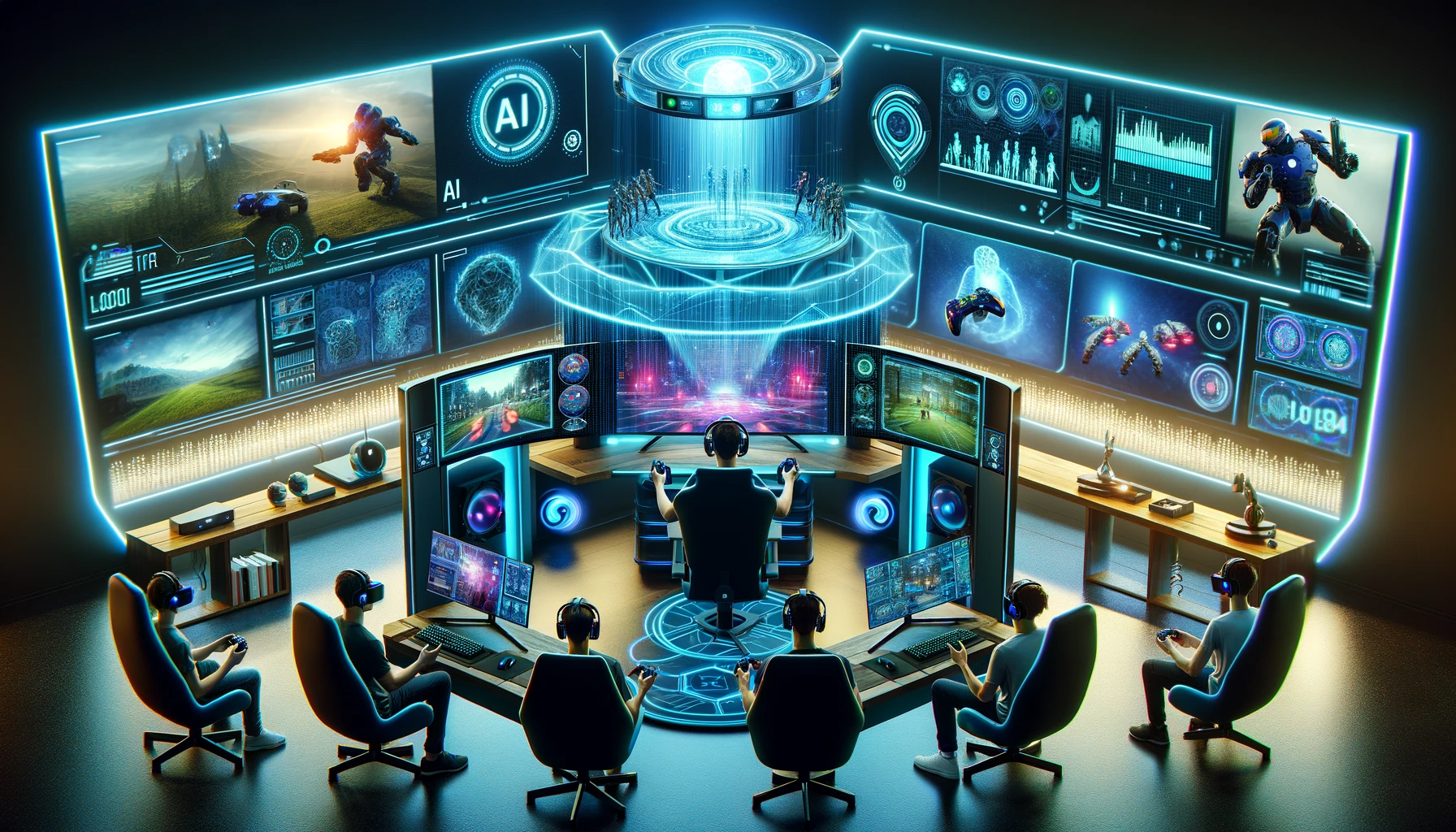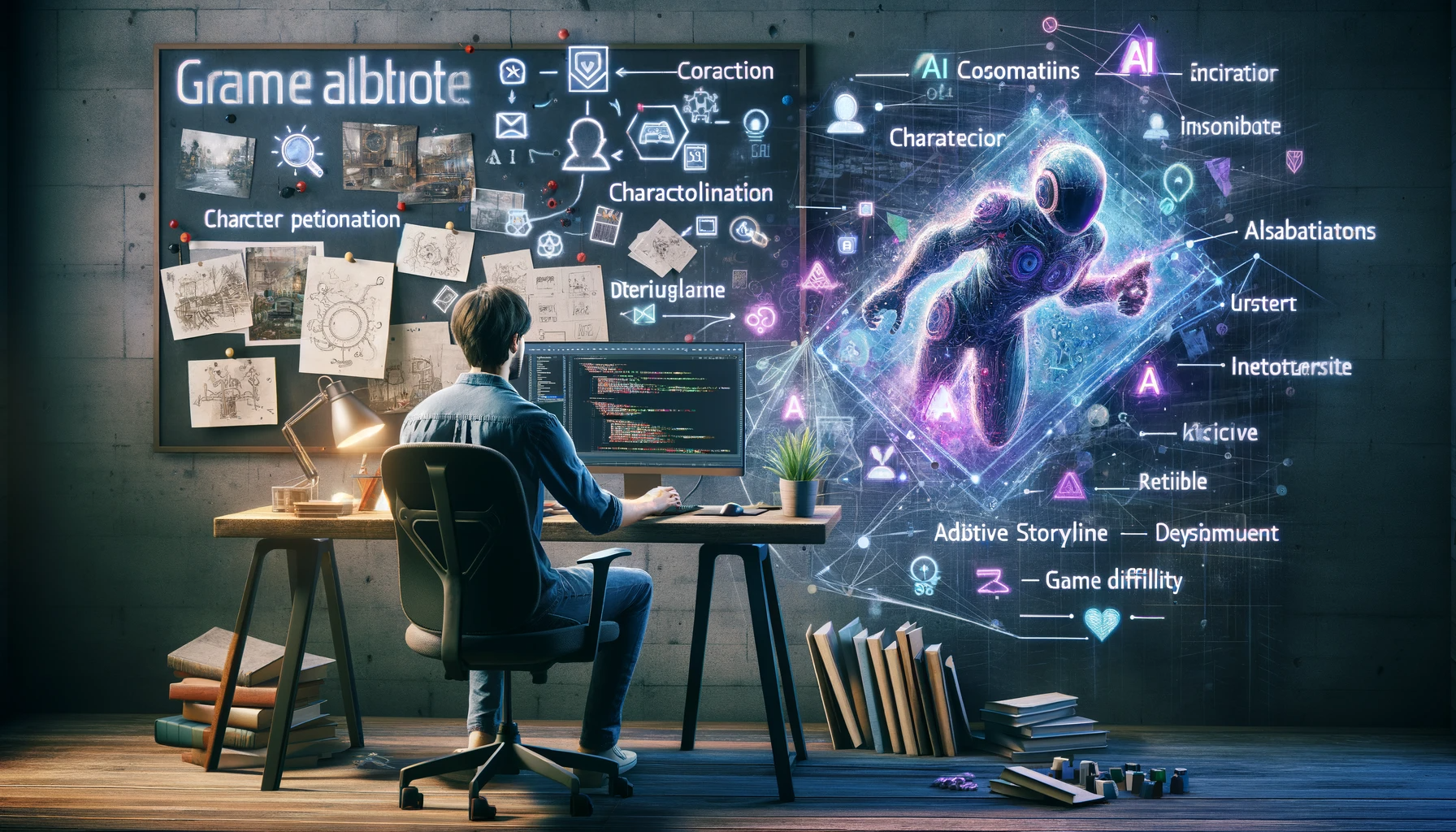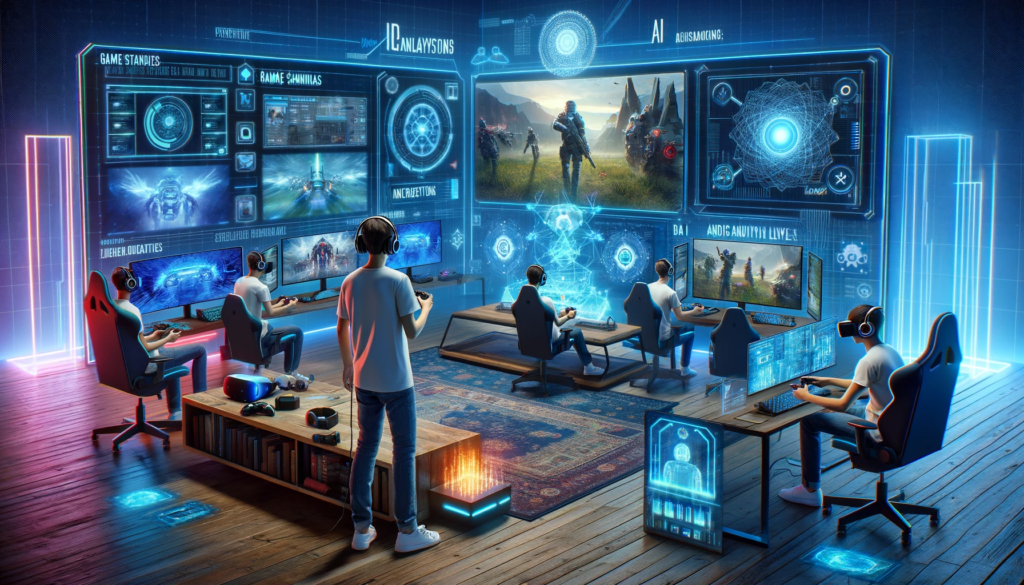The gaming industry has undergone a remarkable transformation in recent years, driven by the ever-increasing demand for personalized experiences. Gamers no longer seek one-size-fits-all gameplay; instead, they crave experiences tailored to their unique preferences and playing styles. This shift towards personalization has led to a pivotal role for artificial intelligence (AI) in shaping the future of gaming.
The introduction of AI into gaming has ushered in an era where every player’s journey is distinct. Whether you’re exploring the vast landscapes of an open-world RPG, engaging in fast-paced battles, or immersing yourself in a narrative-driven adventure, AI is the force behind the scenes that makes it all possible. This article explores the profound impact of AI on personalized gaming experiences and how it’s reshaping the industry.
The Evolution of Personalized Gaming
The concept of personalized gaming is not entirely new; it has been evolving alongside the gaming industry itself. Early attempts at personalization were rudimentary, offering players choices like selecting difficulty levels or customizing character appearances. While these features provided some degree of personalization, they fell short in creating truly immersive and tailored experiences.
Manual personalization methods had inherent limitations. They couldn’t adapt in real-time to a player’s changing skills, preferences, or mood during a gaming session. As a result, players often found themselves either frustrated by excessive difficulty or bored by repetitive gameplay. This section delves into the shortcomings of these early personalization efforts and sets the stage for the transformative power of AI.
AI-Powered Personalization in Gaming
Artificial intelligence, particularly machine learning algorithms, has emerged as the driving force behind personalized gaming experiences. Unlike manual methods, AI has the ability to process and analyze vast datasets, including player behavior, choices, and interactions. This data forms the foundation for AI to make intelligent, dynamic decisions that adapt gameplay in real-time.
AI’s role in gaming personalization encompasses various aspects. It can adjust difficulty levels on the fly, ensuring that challenges remain engaging but not overwhelming. AI can recommend in-game content, such as weapons, items, or quests, based on a player’s preferences and progress. Additionally, AI can tailor the game’s narrative, offering multiple story paths and outcomes based on a player’s choices.
The result is a gaming experience that feels uniquely crafted for each player, providing excitement, immersion, and a sense of agency that was previously unattainable. AI’s capabilities extend beyond the gameplay itself, influencing social interactions, matchmaking, and even the development of future gaming content. In the following sections, we’ll explore these aspects of AI-powered personalization in greater detail, uncovering the ways in which AI is revolutionizing the gaming industry.

Player-Centric Personalization
AI-driven personalization in gaming places the player at the center of the experience, adapting the game’s elements to match individual preferences and skills. One of the most significant advancements in this area is dynamic difficulty adjustment (DDA). DDA utilizes AI algorithms to continuously assess a player’s performance and skill level. If a player finds a particular segment of a game too challenging or too easy, AI can dynamically tweak the difficulty to maintain an optimal level of engagement. This means that every player, whether a seasoned gamer or a novice, can enjoy a satisfying and balanced experience.
Adaptive gameplay is another facet of player-centric personalization. AI can adjust various gameplay parameters based on a player’s actions, ensuring that the challenges presented align with their choices and playstyle. For example, in a stealth-based game, if a player consistently prefers a stealthy approach, AI can generate scenarios that cater to this style, providing more opportunities for stealth tactics.
These player-centric personalization techniques create a gaming experience that feels truly customized. Players are no longer locked into predefined difficulty settings or gameplay styles; instead, the game evolves to meet their preferences in real-time.
Content Personalization
AI’s influence on personalized gaming extends beyond gameplay mechanics; it also transforms in-game content and narratives. AI algorithms can generate personalized quests, items, and storylines based on a player’s actions and choices.
Imagine a massive open-world RPG where the quests you receive are unique to your character’s backstory and previous decisions. AI can create quests that are emotionally resonant and relevant to your character’s journey. Likewise, in-game items and loot can be tailored to your character’s class, playstyle, or preferences, ensuring that every discovery feels meaningful and exciting.
Moreover, AI can dynamically alter the game’s narrative, offering branching storylines with multiple outcomes. Your choices and actions directly impact the direction of the story, creating a sense of agency and replayability. Whether you prefer to be a hero, an anti-hero, or something in between, AI allows the game to adapt and provide the narrative experience you desire.
Social and Multiplayer Personalization
In multiplayer and online gaming, AI plays a crucial role in enhancing social interactions and personalizing the gaming experience for each player. AI-driven matchmaking systems analyze player data to create balanced teams, ensuring that matches are competitive and enjoyable for all participants. These systems take into account factors like skill level, playstyle, and historical performance to create fair and engaging matches.
Player recommendations are another aspect of social personalization. AI algorithms can suggest friends, teammates, or opponents based on shared interests, gaming preferences, or similar skill levels. This fosters a sense of community and connection among players.
Additionally, AI can monitor in-game interactions and chat to identify toxic behavior or harassment, taking steps to maintain a positive gaming environment. This ensures that multiplayer experiences are not only personalized but also respectful and inclusive.
The Future of AI-Driven Gaming Personalization
The future of personalized gaming experiences is poised for even greater transformation with AI at the helm. As AI technologies continue to advance, we can expect more sophisticated and nuanced personalization. Virtual reality (VR) and augmented reality (AR) gaming will benefit from AI-driven enhancements, creating immersive worlds that respond to player actions and emotions in real-time.
Furthermore, AI’s impact will extend beyond gameplay and into game development itself. Developers will leverage AI to generate content, create realistic simulations, and streamline the game development process. The integration of AI into game engines will allow for more responsive and dynamic game worlds.
In conclusion, AI is not just shaping the future of personalized gaming experiences; it is defining it. Gamers can look forward to increasingly tailored adventures that adapt to their preferences, skills, and choices. The possibilities are limitless, and as AI continues to evolve, so too will the boundaries of what’s possible in the world of gaming.

Conclusion
Artificial intelligence (AI) has emerged as the driving force behind the evolution of personalized gaming experiences, reshaping the gaming industry in profound ways. What was once a realm of static, one-size-fits-all gameplay has now become a dynamic landscape where every player’s journey is distinct and tailored to their preferences. In this concluding section, we recap the transformative impact of AI on personalized gaming and its implications for the future.
AI-driven personalization places the player at the center of the gaming experience, adapting gameplay mechanics, difficulty levels, and narrative elements to match individual preferences and skills. Dynamic difficulty adjustment (DDA) ensures that players of all skill levels can enjoy a satisfying and balanced experience. Adaptive gameplay tailors challenges and scenarios to a player’s choices and playstyle, creating a sense of agency and immersion.
Beyond gameplay, AI extends personalization to in-game content and narratives. Quests, items, and storylines are generated based on a player’s actions and choices, making every discovery feel meaningful and exciting. Multiple story outcomes provide replayability and a sense of ownership over the narrative direction.
In multiplayer and online gaming, AI enhances social interactions through matchmaking systems and player recommendations, fostering a sense of community and connection. AI also monitors and addresses toxic behavior, ensuring that multiplayer experiences are not only personalized but also respectful and inclusive.
Looking to the future, AI-driven gaming personalization will continue to advance. Virtual reality (VR) and augmented reality (AR) gaming will benefit from AI’s ability to create immersive and responsive worlds. Game development itself will undergo a transformation as AI is integrated into engines, enabling more efficient content generation and realistic simulations.
In essence, AI is not just transforming personalized gaming experiences; it is defining the future of gaming. Players can anticipate increasingly tailored adventures that adapt to their preferences, skills, and choices. The potential for innovation in the gaming industry is boundless, and as AI technologies evolve, so too will the boundaries of what’s possible in the world of gaming. Gamers can look forward to a future where every gaming experience is uniquely their own, thanks to the power of AI-driven personalization.
